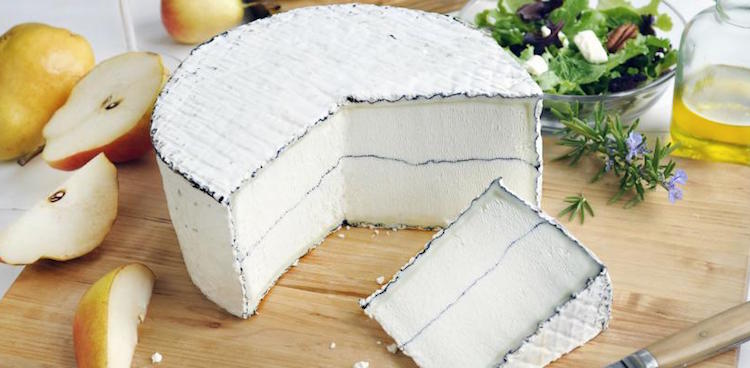
I’ve been tempted to make goat cheese a part of my every meal before, and now, thanks to a Time interview with five experts, I’m starting to seriously consider it. According to nutrition expert Kristin Kirkpatrick (who has her own goat), goat cheese is one of the healthier cheeses out there. An ounce of goat cheese gives you 5 grams of protein, 40 mg of calcium, and around 3% of daily iron recommendations. The 75 calories and 6 grams of mostly saturated fat in each ounce is less than that in many other soft cheeses.
According to an experiment conducted in part by Javier Díaz Castro, a professor in the department of physiology at the University of Granada in Spain, goat’s milk cheese given to rats “increases absorption of iron and improves bone formation and the bioavailability of certain minerals” more so than with cow’s milk cheese.
If that wasn’t enough to make you drop everything and pick up a fresh chèvre, it’s also better for digestion. “The protein structure is different from other animals’ milk; it’s easier to breakdown because the fat does not separate,” says Whole Foods cheese expert Cathy Strange. People who are sensitive to cow’s milk can usually eat goat’s milk cheeses without issue, says food chemistry professor Walter Vetter.
While goat cheese isn’t the healthiest food in the world, Yale’s Prevention Research Center director Dr. David Katz still makes a great case for goat cheese consumption. “Pleasure is good for health,” Dr. Katz says. “And as an occasional treat for those who love it as we do, goat cheese is very pleasurable stuff.”
To be honest, I wouldn’t have stopped splurging on goat cheese even if all of these experts said it was the worst food out there. But still, it’s nice for us cheese lovers to hear that indulging in this delicacy isn’t a bad thing.



